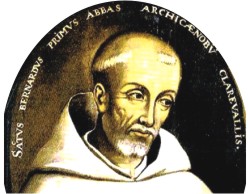Last & Least
How sharp is Occam's razor?
Dr Binoy Barman
 I always like to use a sharp razor for shaving. Earlier I used loose blade, inserting it in a holder, for this job. But nowadays I use fixed blade, several in row, provided by Gillette although it is very expensive. The main reason is it feels far sharper than the loose ones and run on skin smoothly. To cut fine things a fine blade is necessary. Razor is such a tremendous object which prevents our cheek from being shaggy. A useful concrete object it is. But a razor may also be abstract, a theoretical construct. Standing in front of the basin mirror, while shaving, I think of Occam's razor. It is used in intellectual world for trimming things of abstract type. I always like to use a sharp razor for shaving. Earlier I used loose blade, inserting it in a holder, for this job. But nowadays I use fixed blade, several in row, provided by Gillette although it is very expensive. The main reason is it feels far sharper than the loose ones and run on skin smoothly. To cut fine things a fine blade is necessary. Razor is such a tremendous object which prevents our cheek from being shaggy. A useful concrete object it is. But a razor may also be abstract, a theoretical construct. Standing in front of the basin mirror, while shaving, I think of Occam's razor. It is used in intellectual world for trimming things of abstract type.
William of Occam or Ockham, the famous philosopher and theologian of the thirteenth and fourteenth century, whetted the human wits with his special knife, named after him -- 'Occam's razor'. I just wonder how sharp it is! So far it has cut open many problems in science and philosophy. It has acted as a guide to arriving at a decision in a situation of dilemma. The razor has not been rendered blunt even cutting over centuries. Rather it has been ever sharper with the passage of time. I think we can use it to cut many hazards off our life and live happily thereof.
Occam asserted that one should not assume the existence of more things than are logically necessary. “Pluralitas non est ponenda sine necessitate” (Plurality should not be posited without necessity). The principle is also expressed as: “Entities are not to be multiplied beyond necessity.” His theory advocated great economy or parsimony in expression. That is why it is also called ' the law of economy' or 'the law of parsimony'.
Occam studied logic at Oxford University and wrote important treatises on the subject. He opposed the pomp of the Catholics and led a simple life as Franciscan. And he infused his simplicity into his philosophy. He put forward a theory of logic which declared the virtue of 'simplicity'. He said the simpler the theory the better, just as he believed the simpler the life the better. He was thus a champion of simplicity. He criticised the Scholastic ideas of form, essence, and universal for complications. He maintained that such abstract entities are merely references of words to other words rather than to actual things.
Occam himself applied his razor to decide on various theoretical matters. He gave alternative explanations of 'the relation of things', which he held to be nothing distinct from their foundation in things. He explained it firstly with efficient causality, which he tended to view merely as regular succession; secondly, he explained it with motion, which is merely the reappearance of a thing in a different place; and thirdly, he explained it with psychological powers distinct for each mode of sense; and fourthly, he explained it with the presence of ideas in the mind of the Creator, which are merely the creatures themselves.
Occam's razor is considered as a reliable philosophical principle. Thomas Aquinas said in support of this: “If a thing can be done adequately by means of one, it is superfluous to do it by means of several; for we observe that nature does not employ two instruments where one suffices.” According to Leonardo da Vinci, “Simplicity is the ultimate sophistication.” If you can explain a phenomenon in simple terms, do not resort to complicated language. Many scholars have a tendency to express ideas in difficult idioms when they can just do with easy words. By this, they commit the sin of violating Occam's razor. Their wisdom proves to be showy and not real. It is merely pedantry, empty scholarship. They write for impression rather than expression. Pity for them!
Occam's razor has been applied to scientific research. It has settled disputes between conflicting scientific theories. The guideline principle is: “Of two competing theories, the simpler one is to be preferred.” Galileo defended the simplest hypothesis of the celestial bodies. Isaac Newton spoke in the same spirit, “We are to admit no more causes of natural things than such as are both true and sufficient to explain their appearances. Therefore, to the same natural effects we must, so far as possible, assign the same causes.” Albert Einstein himself followed this principle and came up with the simplest possible equation of physics: e=mc2, explaining the relationship between mass and energy vis-à-vis time.
 Why is a simpler theory better? Because it is more practical and it easily appeals to human aesthetics. The philosopher of science Karl Popper finds another reason. He says, simple theories may be justified by falsifiability criterion -- they are easily testable. Another philosopher of science Elliott Sober says, the simple theory is more informative, in the sense that less information is required in order to answer one's questions. Richard Swinburne argues for simplicity on logical grounds: “... other things being equal ... the simplest hypothesis proposed as an explanation of phenomena is more likely to be the true one than any other available hypothesis, … and it is an ultimate a priori epistemic principle that simplicity is evidence for truth.” Why is a simpler theory better? Because it is more practical and it easily appeals to human aesthetics. The philosopher of science Karl Popper finds another reason. He says, simple theories may be justified by falsifiability criterion -- they are easily testable. Another philosopher of science Elliott Sober says, the simple theory is more informative, in the sense that less information is required in order to answer one's questions. Richard Swinburne argues for simplicity on logical grounds: “... other things being equal ... the simplest hypothesis proposed as an explanation of phenomena is more likely to be the true one than any other available hypothesis, … and it is an ultimate a priori epistemic principle that simplicity is evidence for truth.”
Occam's razor has been amply applied in mathematics, biology, chemistry, medicine, theology and psychology. Is Occam's razor also applicable to literature? Some recommend it as a measure of how good the plot of a novel is. Simple and logical plots are easy to explain and this enhances the experience of the reader. The writer is also less likely to make an error while explaining the plot to the reader. But it may not be true in all cases. Tolstoy's War and Peace is a formidable reading despite its complicated plot. Plot structure is also complicated in the long narrative like Arabian Nights, but it provides superb stories in world literature. Every explanation may be considered unique in this world. This theme has been explored by the Argentinean writer Jorge Luis Borges in his story/mock-essay 'Tlön, Uqbar, Orbis Tertius'. The best explanation is not always the simplest -- is well expressed by the Sir Arthur Conan Doyle's character, Sherlock Holmes, in 'The Sign of the Four': “When you have eliminated the impossible, whatever remains, however improbable, must be the truth.”
Occam's razor may not always be safe. It has its blunt spots. Simple theories are not always the best theories. There are many problems in sciences and other disciplines which cannot be solved with simple explanations. Complex theories are necessary in these cases. For instance, classical physics is simpler than more recent physics though the former should not be preferred over the latter. Therefore anti-razors have been created so as not to allow Occam's razor to lead to a mistake. Gottfried Wilhelm Leibniz, Immanuel Kant and Karl Menger made people cautious of the loopholes of the razor. Leibniz's counter-razor says: “The variety of beings should not rashly be diminished.” If multiple models of natural law make exactly the same testable predictions, they are equivalent and there is no need for parsimony to choose one that is preferred.
Einstein, though a worshipper of simplicity, cautioned, “Everything should be made as simple as possible, but not simpler.” There is little empirical evidence that the world is actually simple or that simple accounts are more likely than complex ones to be true. So Occam's razor may stifle or delay scientific progress. Look, all phenomena in the universe may be resolved just with the simple intervention of a Super Being. But that will hinder all progress of knowledge.
Occam's razor has practical application even in human life, though. Simplicity is a virtue in human life. Occam's razor teaches us to put our food from plate to mouth directly and avoid moving it around our head. It tells us not to make water muddy before we drink it. It teaches us to be simple and direct. When we can solve a problem with a simple talk with a person, we need not call a meeting for it. If we can drink water with a glass, why need we use a pipe? But beware! Remain moral in social interactions. Don't give and take bribe to get things done easily. It is the abuse of Occam's razor. What you think 'easy' may ultimately put you in a 'difficult' situation. The prison may make you understand how sharp Occam's razor is!
(The writer is Assistant Professor and Head, Department of English, Daffodil International University.)
| 